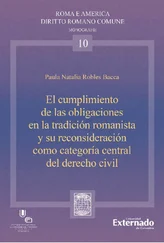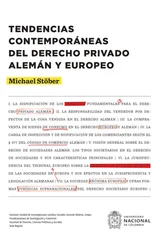Appropriate definition of network governance requires the identification of the duties of network head, the definition of the framework for dialogue in the network and the establishment of an internal frame of moderation and internal resolution of disputes through mediation and arbitration.
The duties of head of network includes a special duty to act in good faith that is based on the stability and duration — real or potential-of the network connection and on the intuitus personae character of network contracts — intuitus personae that includes the intuitus instrumenti that is not an opposed alternative to the former, as it is generally accepted by the legal scholarship, but an evolution of it —.
The duty of good faith may involve a special set of duties: the duties of information, the duty of confidentiality, duties of care, duty of deliberation of important decisions for the network or a duty to give a preferential option to the network members.
The duties of loyalty that affect the network head — that is to act in accordance with the interests of the network to create value and no unnecessary damage to the divergent interests of its members — are based on the collaborative nature of contractual agreements or the associative relationship in the case of networks of this nature and in any case in the existing cooperation between the parties or members of the network.
The duty of loyalty means acting in the best interests shared by network members without unduly hurting the divergent interests of its members. The act that fulfils these conditions is often described as an act in “network interest”.
Some duties are deduced from this, such as the duty of transparency regarding the interests of the network head in the enterprises providing goods or services to the network, the duty to refrain from using the network resources for business purposes, not shared with the members of the network, the prohibition to replace an efficient network member in order to appropriate their business, or the prohibition of the encroachment and tortious interference which in some legal systems as the Spanish one may be also grounded in the duty to act in good faith and fairly.
A network regulation or auto-regulation shall provide rules that ensure the respect of these duties.
A network legal framework may rule in a more detailed way — as it is done in internal documents of some networks — the limits of the ius variandi and when the opinion of either the head of network or the member shall prevail.
An internal framework of the network for a non-confrontational and efficient exercise of directive power steering also requires the dialogue with associations of members, the creation of advisory or co-makers councils and the co-development of the internal network rules of operation.
Network governance also implies the organization of an internal dispute resolution system through mediation and arbitration. These mediators or arbitrators shall help to find solutions or give solutions to the problems between the members but also between the direction or network head and the members. In order to be efficient and in accordance with the good faith principle, a truly independence of internal mediators or arbitrators from the network direction is need. This independence may be obtained by creating a wide list of eligible mediators or arbitrators and by limiting the number of interventions of each one of them. If arbitrators or mediators are always the same and are paid by the head of network it is difficult to believe that they will act independently.
c. Ius variandi
The change of the activity conditions implies in general the conformity of all the members in organizational networks, with the exception of cooperatives and second degree cooperatives, companies, and consortiums or EIG’s where the statutes introduce the majority principle.
The decision to submit some or all decisions about the change of conditions to the majority — in company directory or assembly — concerns all members.
In the case of contractual networks the change of conditions may be attributed by contract to one of the parties — the network head for example in parallel contracts' networks as franchise —. In these cases the ius variandi concerns only one of the network members, limited by abuse of right doctrine — not global accepted — an objective novatio doctrine.
All these systems of control — consensus or majority, and unilateral attribution of the ius variandi with the limits of abuse of right or objective novatio doctrine are inadequate to regulate this question in networks, as the experience teach us.
d. Encroachment, virtual encroachment and tortius interference
The relationship of network members with customers is a typical source of tensions between them and, in some cases, with the network head. Network direction shall coordinate its members without infringing competition rules 12. Encroachment and tortius interference are sometimes used by the network head to convert shared customers in own exclusive ones. In the last years internet development has also created problems in networks regarding the internal relationships between members and between members and network head, if any, in relation with customers — virtual encroachment —.
In all these cases we find conducts which are far from competition by efficiency. The network head, either alone or in connexion with other network members, undertakes interference, obstruction or predatory practices affecting other members. These conducts infringe good faith and fair dealing — contractual and market ones — as well as loyalty principles.
Interference with contractual relations, with reasonable expectations or business relations, with prospective economic advantages, and the induction refusal to deal are some groups of these kind of typical network bad practices.
Such practices deprive network members of the possibility to obtain the benefits they can reasonably expect from their investments and limit their expectations in the market.
The prohibition of encroachment may be grounded in the principles of loyalty, fair trade or good faith, depending on the different legal systems. Its acceptance varies from the British quasi negation to the German or Nordic firm defence.
A legal framework for networks must deal with these three questions: the protection of investments and reasonable expectations of network members, the recognition of directory’s coordination power, and the limits between legitimate competition and illegitimate interference.
The limits on the exercise of coordination by the network directory due to antitrust rules are, however, less relevant than it seems at first sight.
In cases involving the network head — acting in its own benefit or giving advantage to another member of the network — customer network reallocation comes from a discretionary decision of the network head and not from competition by efficiency.
Interference or encroachment are usually directed against highly efficient distributors for reasons clearly unrelated to competition policy such as preventing that a given member of the network gains too much internal weight or preventing the creation of autonomous power centres within the network that concede a greater bargaining power to its members.
A hypothetical intra-brand increased competition after the encroachment or interference does not justify the potential harm to the interests of one network member not covered by the prosecution of the shared interest when the conduct does not increase the inter-brand competition.
The exercise of coordination power to prevent encroachment or tortious interference shall not affect in any way inter-brand competition, since in these cases there is a cannibalization of customers belonging to the network and not an injection of new customers for the network.
Читать дальше











